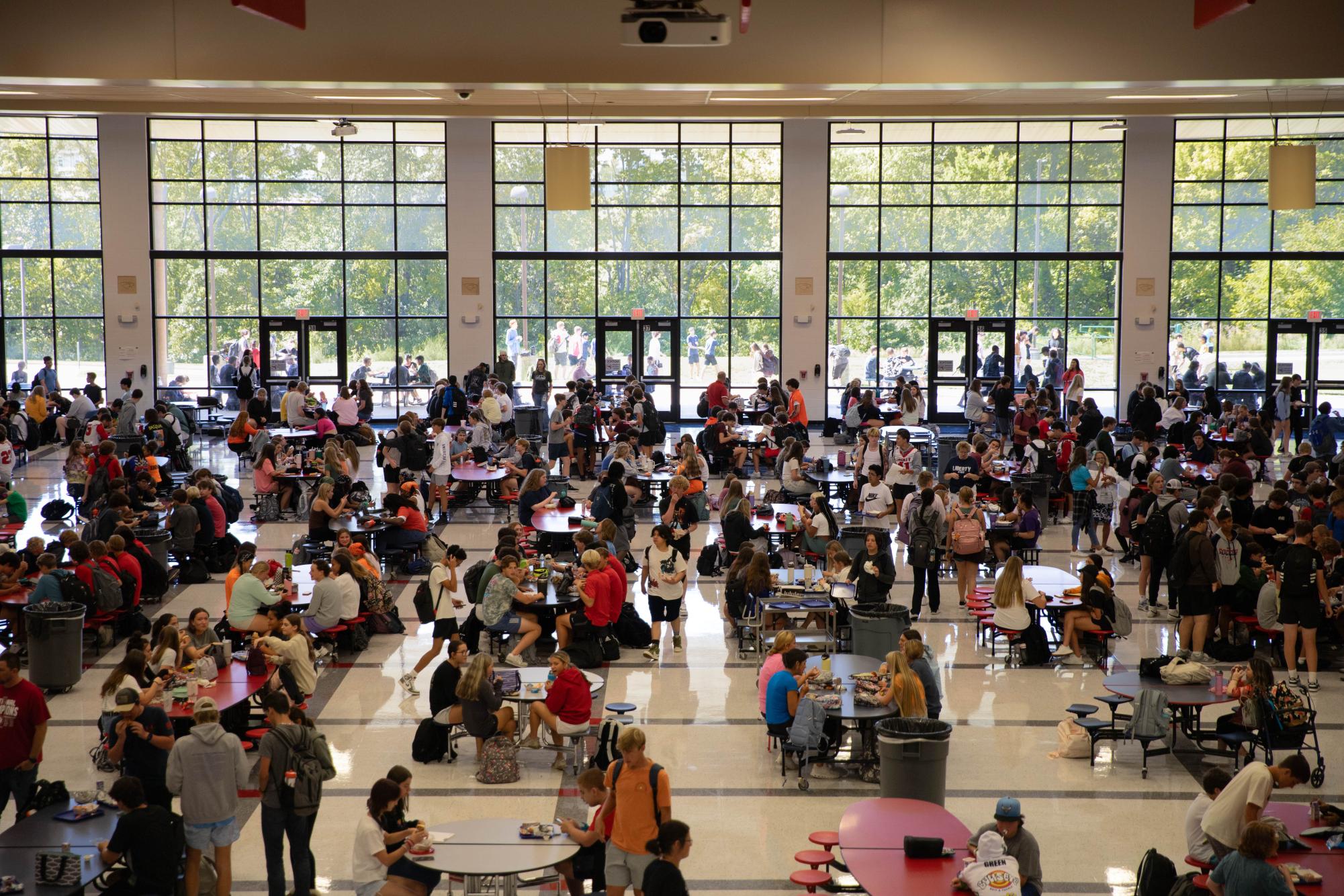It’s no secret that the LHS administration sees power lunch as a privilege, one that is very often taken away at the first sign of trouble. The hour-long lunch break, which has been proven to help students with stress and coursework, is split back up into two 30-minute lunch periods. While it’s understandable that this may seem like an appropriate punishment, most students think that it’s quite unnecessary.
On more than one occasion, students have expressed their frustration with collective punishment. One student, sophomore Adrian Campos, in particular said, “Punishing students as a whole for what a very small portion of students did is not the right way to go about correction. If you think about it, would a whole group of people go to prison if one person unrelated to that group committed a crime?”
From the students’ perspectives, it seems like the school is trying to use positive reinforcement, but failing. Essentially, the administrators say that Power Lunch is something that you can earn if you behave and follow the rules, but that’s not really how they treat it in action. It’s not a privilege, it’s a form of punishment. It’s almost like a carrot that the school is dangling in front of students’ faces and then snatching it away when they think it’s appropriate. It’s unfair to the students that don’t get in trouble that often, if ever, which is by far the majority. Even head principal Mr. Nelson said, “I don’t agree with collective punishment.”
So then why do they still do it? According to Nelson, “There’s safety and security reasons behind it and that’s why I do it.” But, he then said, “I can’t share discipline and safety and security reasons.” However, wouldn’t the student body be safer if we knew the full extent of what was going on? Students would probably be less upset if they knew why the punishment was being administered.
Nelson continued on and used myself as an example, saying, “Would you like me to get on the PA and say ‘Meghan Lynch has threatened six people so we’re gonna take away power lunch?’” But when discussing this with the student body, the common opinion is this: nobody would like it, but it would be necessary, and the perpetrator would deserve it. Understandably, one can’t disclose that type of information, especially since practically all students are minors, but in a perfect world it seems fair to share what wrongs the perpetrator has committed. Because it’s only the perpetrator’s fault, right? Unfortunately, some people in charge don’t think so.
It seems that the school thinks we’re all guilty. When talking with a teacher who was at the scene during one of this years’ incidents, she said that the school is also wanting to punish the students who try to watch the fight and gossip about it. That opinion seems a little extreme and doesn’t take into account humans’ natural responses. When, in all of history, have people been expected to see a conflict and not want to know what’s going on? One example that comes to mind in particular is the first battle of the American Civil War: Bull Run. Based on information from the United States Senate, the battle was just 30 miles from Washington, and men, women, and even children literally brought picnic blankets and watched the battle from afar. Now, yes, wars are a lot worse and can have a much larger impact, but the principle remains the same: when conflict arises, we, as humans, want to know the details.
As for the gossip element, it seems unlikely that people are purposely trying to cause problems and make the situation more difficult for administration. According to Frontiers in Psychology, the “most common motives for gossip are information validation and gathering, rather than harming the gossip target.” No one wants to cause problems, it’s just a natural response to share information, especially when it might directly affect one’s life.
Most of the school understands—to a certain extent—why the administration would feel the need to do this, but it feels like they’re grasping at straws and are unable to come up with a real solution, especially when collective punishment has been proven time and time again that it doesn’t work. The U.S. Naval Institute said, “Practices that penalize the group for one member’s failure to follow the rules…are ineffective at discouraging undesired behaviors.” Taking away Power Lunch as a form of collective punishment has never shown any real changes.
“I think that this type of punishment does not work, and that is because to properly punish the students, you need to discipline them specifically,” said junior Brandt Cleppe. “When you target the entire school, it doesn’t properly stop the people who are causing it, and it limits everyone else.”
The administration used the same method of punishment during the 2022-23 school year and no matter how many times they took away Power Lunch, fights kept happening, and still do. When interviewing Mr. Nelson on whether or not he thinks taking away power lunch as a punishment works, he wouldn’t give a straight answer. He explained many other aspects of why he would use this punishment, but wouldn’t explicitly say yes or no.
Generally, it seems that, as a whole, the student body is disappointed in the actions of the administrators and the way they are handling these situations. It’s unfair, and leaves everyone unhappy and frustrated with the school. With that being said, however upset students are with the school, it’s important to note that these problems with discipline might be due to lack of support from the district and/or the school board.
When asked if he thinks the district gives the school enough resources to handle students, Mr. Nelson said, “Sure. Absolutely.” But it’s impossible to know if that’s truly the case, seeing as there’s often a lack of support when it comes to things like parental grievances, which can be especially hard to manage when they are so frequent. All in all, whatever complaints the student body has about collective punishment are completely valid, but it’s important to empathize with the people in charge who are trying to make the right decisions in the moment.





Alyssa Donaldson | Dec 4, 2023 at 9:27 am
Heck yes! This is amazing!
Lorelei Wise | Dec 1, 2023 at 11:19 pm
This is really well researched and thought out, Meghan! I appreciate the rationality from representation from all sides, while highlighting the controversy and issue, taking the first step towards a possible solution.
Jared A. Houston | Dec 1, 2023 at 5:13 pm
Thank you so much for writing this! I’m thankful that I now know I’m not the only one who gets frustrated with split lunches.